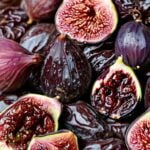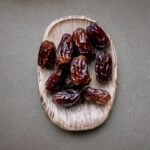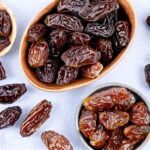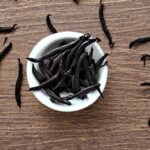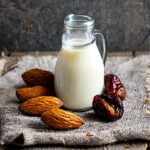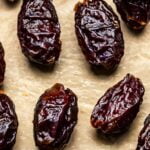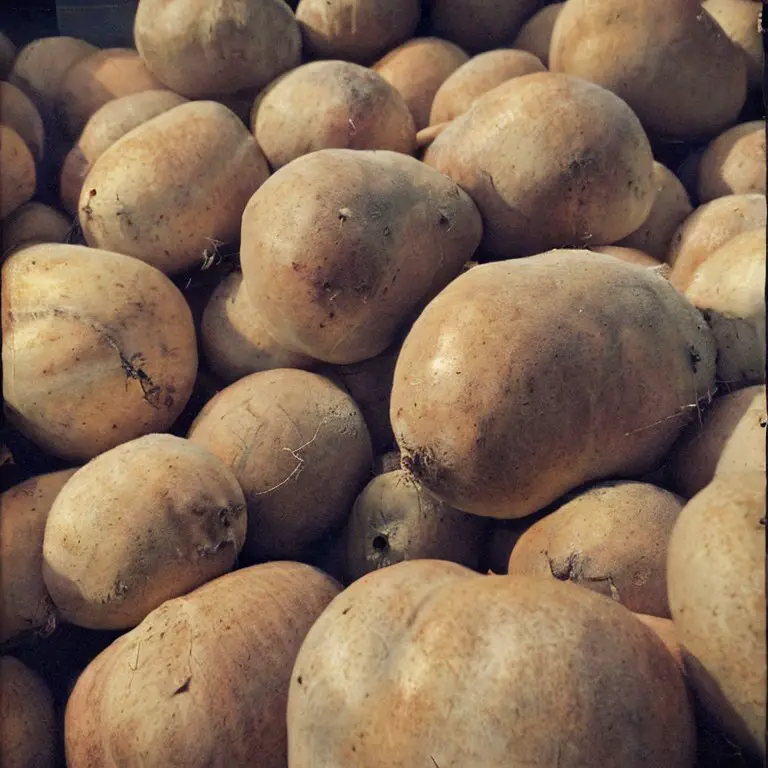
In this post, we will look at both fruits and vegetables that start with the letter Y. (You can view each individual post at Fruits that Start with Y and Vegetables that Start with Y)
We will first start with the fruits beginning with Y and then we will look at the vegetables after that.
Contents
Fruits that Start with Y
The letter Y fruits may not be available in all regions and may be less common than other fruits.
But all the mentioned fruits are nutritious and delicious, they provide a good source of vitamins, minerals and antioxidants. They can be eaten fresh, used in jams and jellies, or added to salads and drinks. They can be a great way to add variety to your diet and to enjoy the different flavors and textures.
Yumberry
Also known as Chinese bayberry or yangmei, Yumberry is a small red fruit native to China. It is a member of the myrtle family and has a sweet-tart flavor similar to cranberries. Yumberry is high in antioxidants and vitamins, and is often used in traditional Chinese medicine to promote healthy digestion and circulation.
Yuzu
Yuzu is a citrus fruit that is native to East Asia. It is believed to be a hybrid of the mandarin orange and the Ichang papeda.
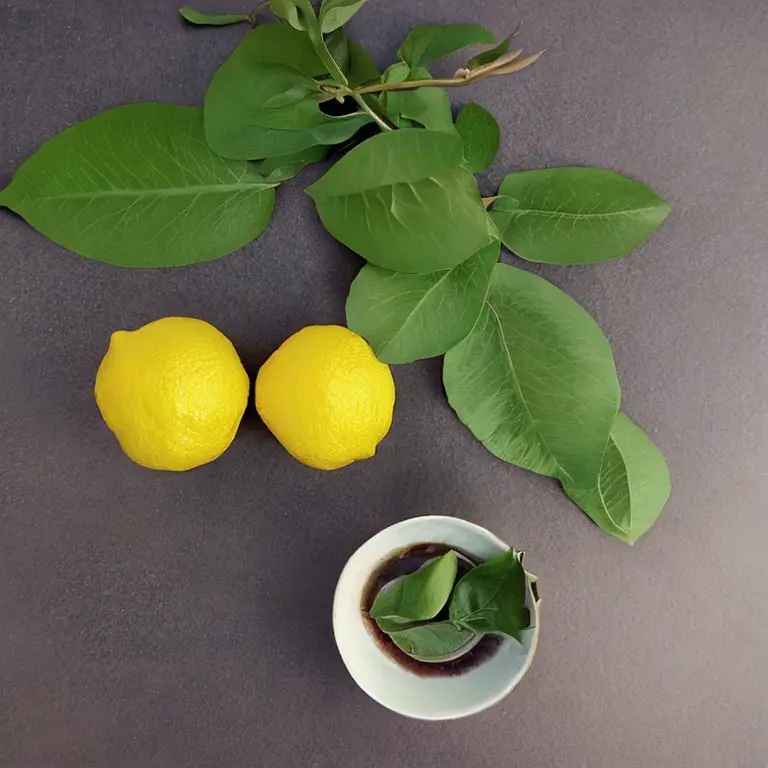
Yuzu is commonly used in Japanese cuisine, particularly in dishes such as yuzu kosho, a spicy condiment made from yuzu zest, chili peppers, and salt. The fruit is also used to make yuzu vinegar, yuzu juice, and yuzu tea. Yuzu has a unique flavor that is described as a combination of mandarin orange, grapefruit, and lime. It is also known for its strong aroma.
York Imperial Apple
The York Imperial Apple is a cultivar of the domestic apple, which is known for its large size, firm texture and long storage life. It is an all-purpose apple that can be used for both cooking and eating. York Imperial apples are typically picked in October and can last up to 8 months in storage.
Yunnan Hackberry Fruit
Also known as “Ning Meng” in Chinese, Yunnan Hackberry Fruit is a small, round fruit that is native to the Yunnan province of China. It is a relative of the Chinese jujube and has a sweet and slightly tart flavor. The fruit is high in Vitamin C and is often used in traditional Chinese medicine to boost the immune system.
Yemenite Citron
The Yemenite Citron is a variety of citron that is grown mainly in Israel and Yemen. It is known for its large size and thick, fragrant rind. The fruit is used in Jewish ritual for the holiday of Sukkot, and is also used to make citron jam and cand citron peel for baking.
Young Mango
Young Mangoes are the unripe versions of the more popular mature fruit. They are typically green in color and have a firm texture. They are used in various culinary dishes, particularly in Southeast Asian cuisine, where they are often used in salads, curries and pickles. They are less sweet than ripe mangoes and have a more tangy taste.
Yellow Watermelon
Yellow watermelon is a type of watermelon that is typically yellow in color. It has a sweet, juicy flesh and is typically eaten fresh or used in salads, smoothies, and other fruit dishes. Yellow watermelons are a good source of hydration, vitamins, and minerals, including vitamin C, potassium, and lycopene.
Yellow Passion Fruit
Yellow passion fruit is a type of passion fruit that is typically yellow in color when ripe. It has a sweet, juicy pulp and a high concentration of seeds. Passion fruit is often used in a variety of desserts, drinks, and sauces. It is also a good source of vitamin C, dietary fiber, and antioxidants.
Yellow Plum
Yellow plums are a type of fruit that are typically yellow in color when ripe. They have a sweet, juicy flesh and a slightly tart skin. Yellow plums are often eaten fresh, but can also be used in jams, jellies, and other preserves. They are a good source of vitamin C, dietary fiber, and antioxidants.
Yellow Guava
Yellow guava is a type of guava that is typically yellow in color when ripe. It has a sweet, juicy flesh and a slightly gritty texture. Guavas are often eaten fresh or used in jams, jellies, and other preserves. They are a good source of vitamin C, dietary fiber, and antioxidants.
Yellow Starfruit
Yellow Starfruit is a tropical fruit that is typically yellow in color when ripe. It has a sweet and tangy taste, and a unique shape and is often eaten fresh or used in salads, drinks or as a garnish.
Vegetables that Start with Y
Unfortunately, there are not many vegetables that start with the letter “Y”. There are only a few, and the rest are only vegetables with the word “yellow”, but we will include them last in the list.
Yam
Yams are a type of root vegetable that are native to Africa and Asia. They have a rough, scaly skin that is typically brown or black in color, and a starchy, sweet flesh that is typically white or orange.
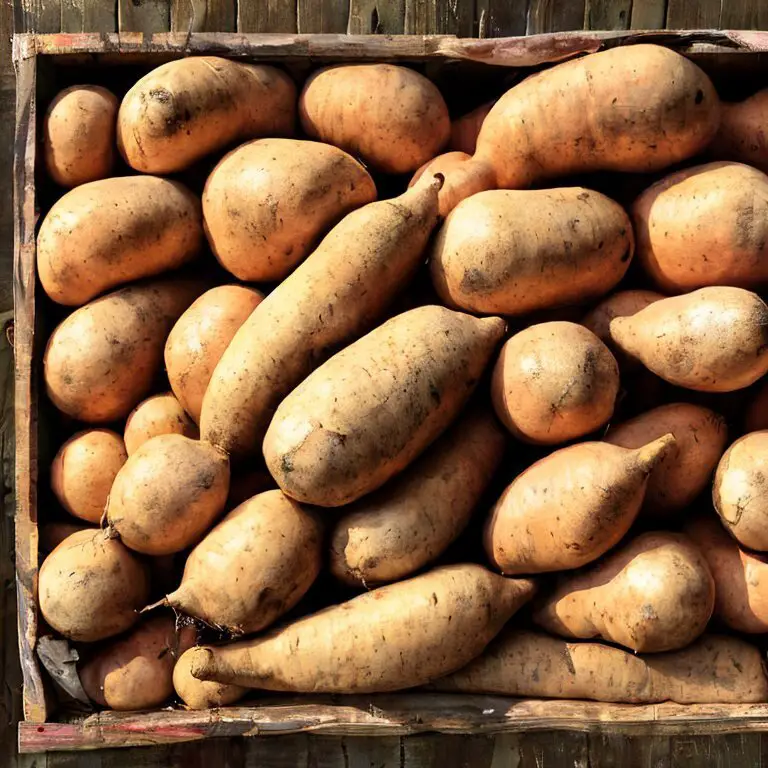
Yams are a good source of dietary fiber, vitamins, and minerals, including vitamin C, potassium, and manganese. They are typically used in savory dishes, but can also be used in sweet dishes such as pies and cakes.
Yucca Root
Yucca root, also known as yucca or yucca tuber, is a root vegetable that is native to the Americas. It is a hardy and drought-tolerant plant that is often used as a landscape plant. The root of the yucca plant is edible and has a firm, starchy texture, similar to a potato. It can be boiled, mashed, fried, or eaten raw, and is often used in soups and stews. Yucca root is a good source of dietary fiber, potassium, and vitamin C.
Yucca root is a versatile vegetable that is not commonly known but it is a good source of nutrition and can be prepared in a variety of ways. It has a slightly sweet and nutty taste, making it a great addition to many dishes.
Yautia
Yautia is a root vegetable that is native to the Caribbean and is also known as tannia or malanga. It has a starchy, slightly sweet taste and a similar texture to a potato. It is often used in stews, soups, and fried dishes.
Yellow Squash
Yellow squash is a type of summer squash that is typically yellow in color, although there are also green varieties available. It has a delicate, slightly sweet flavor and a tender, crisp texture. It can be eaten raw, cooked, or grilled, and is popular in a wide range of dishes. It can be sliced, diced, or grated and added to salads, sandwiches, pasta dishes, and soups. It can also be stuffed, breaded and fried, or grilled for a delicious and healthy side dish.
Yellow Onion
Yellow onions are a type of bulb onion that are typically yellow in color. They have a strong, pungent flavor and are often used as a base for many dishes, such as soups, stews, and sauces. They are also commonly used in salads, sandwiches, and as a topping for pizzas and burgers. Yellow onions are a good source of vitamin C, dietary fiber, and antioxidants. They also contain flavonoids, which have been shown to have anti-inflammatory and anti-cancer properties.
Yellow onions are a staple in many dishes around the world, it can be eaten raw or cooked, and is used in both sweet and savory dishes. They are also packed with health benefits such as strengthening the immune system, reducing the risk of heart diseases, and helping to regulate blood sugar levels.
Yellow Wax Beans
Yellow wax beans are a type of green bean that is typically yellow in color. They have a sweet, crisp flavor and are often used in salads and as a side dish. They can also be steamed, sautéed, or stir-fried for a healthy and delicious meal.
Yellow Beet
Yellow beet is a type of beet that is typically yellow in color. It has a similar taste to red beets, but it is less earthy and sweeter. Yellow beets are often used in salads, soups, and as a side dish.
Yellow Carrot
Yellow carrot is a type of carrot that is typically yellow in color. It has a sweet, slightly nutty taste and is often used in salads, soups, and as a side dish.
Fruits and Vegetables Lists
Fruits and Vegetables Lists A-Z
- Fruits and Vegetables that Start with A
- Fruits and Vegetables that Start with B
- Fruits and Vegetables that Start with C
- Fruits and Vegetables that Start with D
- Fruits and Vegetables That Start With E
- Fruits and Vegetables that Start with F
- Fruits and Vegetables that Start with G
- Fruits and Vegetables that Start with I
- Fruits and Vegetables that Start with M
- Fruits and Vegetables that Start with R
- Fruits and Vegetables that Start with X
- Fruits and Vegetables that Start with Y
- Fruits and Vegetables that Start with Z
- Fruits and Vegetables Lists A-Z
Fruits Lists A-Z
- List of Fruits from A-Z (in Alphabetical Order)
- Fruits that Start with A
- Fruits That Start with B
- Fruits that Start with C
- Fruits that Start with D
- Fruits that Start With E
- Fruits that Start with F
- Fruits that Start with G
- Fruits that Start with I
- Fruits that Start with M
- Fruits that Start with R
- Fruits that Start with S
- Fruits that Start with W
- Fruits that Start with X
- Fruits that Start with Y
- Fruits that Start with Z
- 100 Fruit Names (Most Popular Fruits in the World)
- Top 50 Fruits Names List
- Top 20 Fruit Names
- Fruits Lists A-Z
- List of Berries A-Z
- Berries Lists A-Z
Vegetables Lists A-Z
- Vegetables List A-Z in Alphabetical Order
- Vegetables that Start with A
- Vegetables that Start with B
- Vegetables that Start with C
- Vegetables that Start with D
- Vegetables that Start with E
- Vegetables that Start with F
- Vegetables that Start with G
- Vegetables that Start with I
- Vegetables that Start with M
- Vegetables that Start with R
- Vegetables that Start with X
- Vegetables that Start with Y
- Vegetables that Start with Z
- Vegetables Lists A-Z
- 100 Vegetable Names (Most Common in the World)
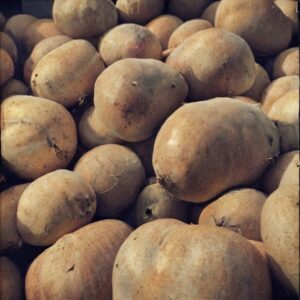
Fruits and Vegetables that Start with Y (The Letter)
Ingredients
- Yumberry
- Yuzu
- York Imperial Apple
- Yunnan Hackberry Fruit
- Yemenite Citron
- Young Mango
- Yellow Watermelon
- Yellow Passion Fruit
- Yellow Plum
- Yellow Guava
- Yellow Starfruit
- Yam
- Yucca Root
- Yautia
- Yellow Squash
- Yellow Onion
- Yellow Wax Beans
- Yellow Beet
- Yellow Carrot
Lance has been passionate about the plant-based diet and we have been following a whole food plant-based diet for over 5 years. We focus on health, natural healing, weight management, animal rights, and the health of the planet and environment by focusing on whole plant-based foods and sustainable practices.
Learn more at the About Me page and follow on social media at the links below.

